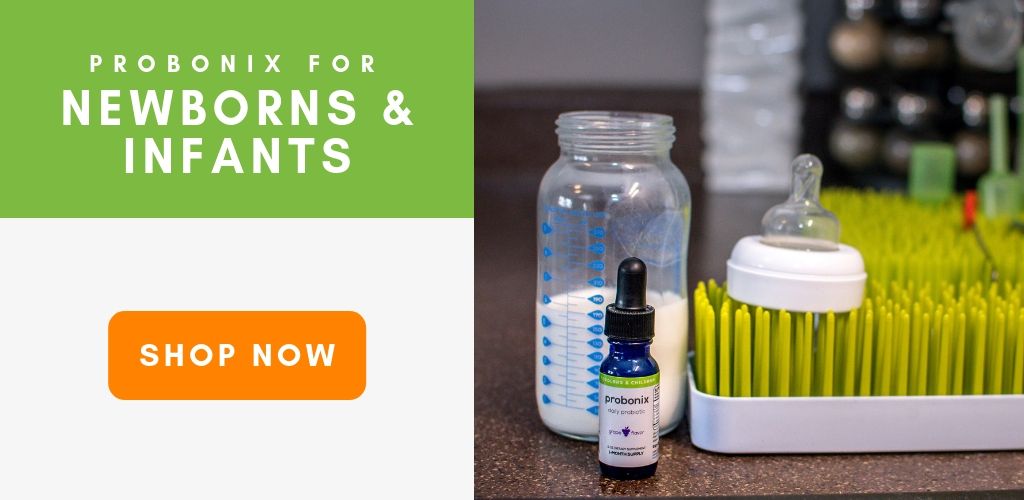Well, to answer this question, it’s important to understand that how the baby enters the world has a significant impact on the baby’s gut health. Babies receive healthy bacteria from their mothers when they pass through the birth canal in a vaginal delivery. C-section babies do not. This bacteria is important because it will help the baby digest breast milk, and it forms the foundation for a healthy and balanced digestive system.
How does healthy bacteria and vaginal birth work exactly?
As a mother’s due date approaches, extra Lactobacillus begins to populate in the mother’s vagina in anticipation of transferring to the baby during birth. Babies that are born vaginally get this first major dose of healthy bacteria (primarily Lactobacillus acidophilus, the predominant vaginal species) from their mothers as they pass through the birth canal.
Babies that are delivered via C-section never pass through the birth canal, so they are never exposed to the body’s natural method of transferring healthy bacteria to the baby. Instead, they receive their first dose of healthy bacteria from the skin of their mother, doctors, and nurses in the delivery room. The amount of bacteria delivered via this exposure is significantly less than through vaginal birth.
According to a 2013 Swedish study1, C-section babies have less gut diversity during the first two years of life than babies delivered vaginally. This study is consistent with many other studies which show that the results of microfloral colonization can have long-lasting effects on the intestines of breast fed infants, such as this particular study2 showing major differences in children up to seven years old.
So what do probiotics have to do with all of this?
Probiotics are an easy way to combat the bacterial imbalances created by C-section deliveries. As the studies noted above demonstrate, these imbalances can extend well beyond the initial year of infancy. Bacterial imbalances in the gut can lead to major health risks through a child’s life. In fact, studies have shown that C-section babies are much more at risk for conditions like asthma, allergic rhinitis, Celiac Disease, Diabetes Mellitus (Type 1), and Gastroenteritis than babies that were delivered vaginally.3
If you’ve delivered a C-section baby or have a planned C-section, probiotic supplementation can work to begin rebalancing the microbiota balance right after delivery. Give your baby the best chance for good gut health from the moment they’re born!
1https://gut.bmj.com/content/63/4/559.abstract?sid=4d52014f-0603-4cd4-9141-eee59039df5a
2https://www.ncbi.nlm.nih.gov/pmc/articles/PMC1774211/
3https://www.ncbi.nlm.nih.gov/pmc/articles/PMC3110651/#R33
People who liked this blog also read these:


